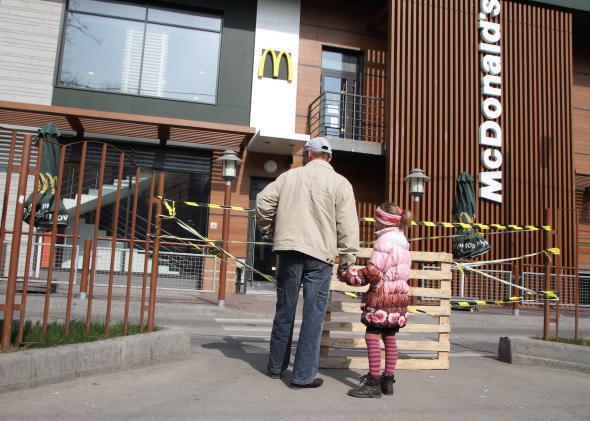In his 1999 book, The Lexus and the Olive Tree, the New York Times’ Thomas Friedman famously posited his infamous “Golden Arches Theory of Conflict Prevention,” which holds that “No two countries that both had McDonald’s had fought a war against each other since each got its McDonald’s.”
Friedman was making a basically legitimate point about economic integration decreasing the likelihood of armed conflict between countries, but unfortunately the theory itself was disproved shortly after the book’s publication when NATO started bombing Yugoslavia. As an informative Wikipedia page points out, the theory was already disproved at the time it was created by the 1989 U.S. invasion of Panama and the 1999 Kargil War between India and Pakistan.
It has also since been contradicted by the 2006 Israeli invasion of Lebanon and the 2008 war between Russia and Georgia. (I also want to briefly salute the anonymous Wikipedian who crafted the marvelous sentence: “The global expansion of McDonald’s restaurants is a relatively recent phenomenon when put into the context of the history of warfare.”)
Russia’s military annexation of Crimea would appear to be another counterexample: Both Ukraine and Russia love the Golden Arches, but this time the franchise is caught in the middle. McDonald’s announced today that it is closing all of its restaurants in Crimea due to “operational reasons beyond our control.” This has prompted nationalist quote machine Vladimir Zhirinovsky (this guy) to call for all of the McDonald’s outlets in Russia to close.
That probably isn’t going to happen, though as Reuters notes, if there were an anti-Big Mac backlash in Russia, it could be pretty dramatic for the company’s bottom line. The branch of the restaurant in Moscow’s Pushkin Square served the most customers of any McDonald’s in the world in 2012. It also played a somewhat major symbolic role in Russia’s post-Soviet transition to capitalism.
Friedman would probably hold that the fact that the Crimea crisis hasn’t broken out into a wider war bolsters his theory. Countries are too economically interdependent today to go to war for very long, and when they do, the financial consequences are dire.
But the “Golden Arches” theory still isn’t a very good way of making this point. Let’s just hope Friedman isn’t eventually vindicated by a McDonald’s-less Russia going on an international military rampage.
